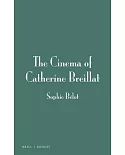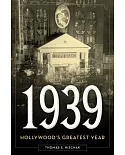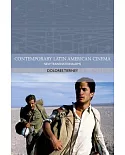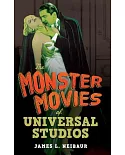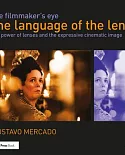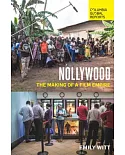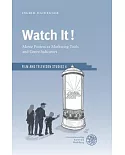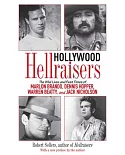One of the most brilliant film-makers in post-war French and world cinema, Jean-Pierre Melville now enjoys renewed popularity. His Bob le flambeur (with its street-wise Montmartre and
Pigalle settings, its cool jazz score and its good-humoured tale of gangster clans) not only inspired the New Wave, but has attained unassailable cult status. Other iconic gangster films such
as Le Doulos, Le Samourai and Le Cercle rouge are now hailed as masterpieces by latter-day legends John Woo and Quentin Tarantino. Meanwhile, with Le Silence de la mer and
L'Arm簿聶翻e des ombres, Melville also contributed two of the greatest films about the Resistance during World War II.
This first major study of Jean-Pierre Melville in the English language discusses the artistic value of the films in their context and the director's love of American culture from which he
derived his name, his sartorial style of Stetson hat and dark glasses, and his ambition to rework the Hollywood gangster film in a French setting. The author looks at Melville's controversial
critical and political standing, his extraordinary focus on masculinity and male stars such as Alain Delon, Jean-Paul Belmondo and Lino Ventura, and his trademark "pared-down"
mise-en-sc簿聶翻ne.
Ginette Vincendeau, one of the world's leading writers on French cinema has here provided the comprehensive critical account of Melville so badly needed and reveals the director to be not only
a fashionable cult director but one of the few true masters of the cinema. One of the most brilliant film-makers in post-war French and world cinema, Jean-Pierre Melville now enjoys renewed
popularity. His Bob le flambeur (with its street-wise Montmartre and Pigalle settings, its cool jazz score and its good-humoured tale of gangster clans) not only inspired the New Wave,
but has attained unassailable cult status. Other iconic gangster films such as Le Doulos, Le Samourai and Le Cercle rouge are now hailed as masterpieces by latter-day legends John
Woo and Quentin Tarantino. Meanwhile, with Le Silence de la mer and L'Arm簿聶翻e des ombres, Melville also contributed two of the greatest films about the Resistance during World War
II.
This first major study of Jean-Pierre Melville in the English language discusses the artistic value of the films in their context and the director's love of American culture from which he
derived his name, his sartorial style of Stetson hat and dark glasses, and his ambition to rework the Hollywood gangster film in a French setting. The author looks at Melville's controversial
critical and political standing, his extraordinary focus on masculinity and male stars such as Alain Delon, Jean-Paul Belmondo and Lino Ventura, and his trademark "pared-down"
mise-en-sc簿聶翻ne.
Ginette Vincendeau, one of the world's leading writers on French cinema has here provided the comprehensive critical account of Melville so badly needed and reveals the director to be not only
a fashionable cult director but one of the few true masters of the cinema.


